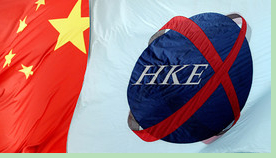The head of Hong Kong’s stock market operator has questioned the city’s commitment to the “one share, one vote” principle, in his clearest comments to date following Alibaba’s decision to take its blockbuster listing to the US.

“ ‘One share, one vote’ is a rule that ensures those who have more of a firm’s share capital have more influence over the company; that is: money is king,” wrote Mr Li.











